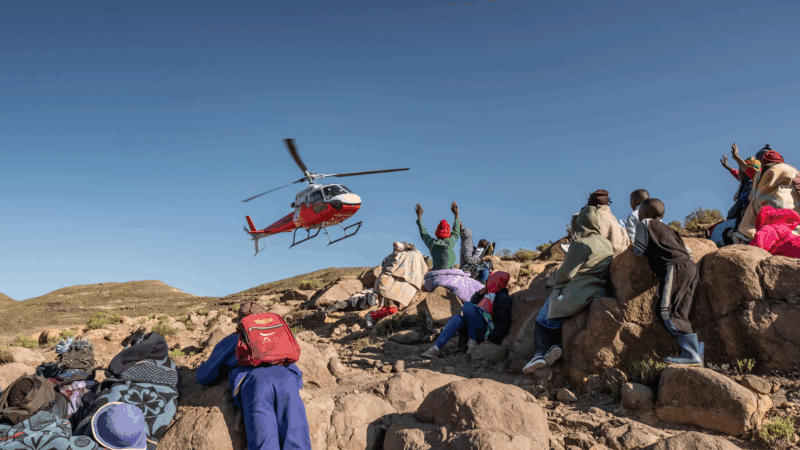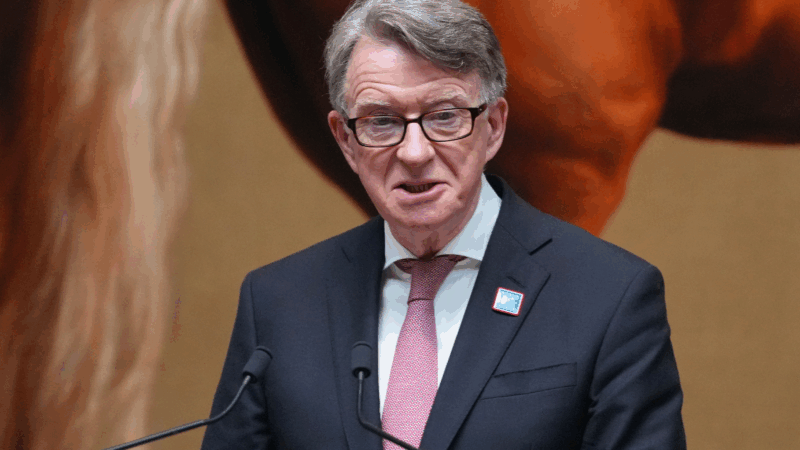Flu Pandemic
Try to get a flu shot in Alabama right now and you’ll have to do a little hunting. Many of the usual places to get a shot, including grocery stores and public health departments, are running low on vaccine this season. Not because of a shortage, just a re-allocation of vaccine to private doctors and other facilities.
But, a flu pandemic would be a different, say public health experts. And the bird flu, in particular, would be devastating if it found its way to the U.S. and found a way to jump from human to human.
“The projections that we’ve used have assumed that about 35% of Alabamians would acquire influenza.”
Right now the bird flu kills more than half the people who get it. Alabama’s state health officer Donald Williamson says the mutated virus would likely be less lethal. But even a dramatically lower mortality rate of just two to five percent would be stunning.
“We’re looking in Alabama at about 4,000 people who would die during an influenza pandemic. That is substantially higher than the 500 – 700 people who normally would die during an influenza season from influenza pneumonia.”
Biotech firms and other groups are working 24/7 to find a workable vaccine for bird flu. Even if they find one, though, there’s the question of affordability.
Today in Washington, state and federal officials met to talk about President Bush’s plan for handling a flu pandemic. Larry Powell is a political analyst at the University of Alabama at Birmingham.
“The debate over the flu epidemic comes on the heels of the Katrina disaster so the federal government has been caught once with their pants down in terms of responding to an emergency. They’re trying to avoid that impression on this one.”
Under the Bush proposal, states would be expected to foot 75% of the anti-viral bill.
“Conservatively you’re looking at a $22 million problem.”
For Alabama alone, says state health commissioner Donald Williamson.
“And if we came up with enough for just 25% of our citizens you’re looking at something that approaches a $60-million problem.”
Williamson worries the federal plan could create a system of haves and have-nots. Residents in wealthier states like California would have easy access to flu vaccine or anti-virals, while residents of relatively poorer states may have to go without.
“Even if Alabama can raise $22 million, can Mississippi? Can Tennessee? Can Kansas? It’s not appropriate for their citizens to be unable to be vaccinated simply by axiom of whether their state can raise the necessary dollars because infectious agents aren’t contained by county and state lines.”
Again, UAB political analyst Larry Powell.
“President Bush has a problem in that he’s supposed to be a conservative and that means that you don’t want to spend a lot of money. Unfortunately his administration has spent an excessive amount of money so far so they’re looking for ways to save it and one way is to have the states pick up the extra funding for the flu epidemic.”
Even if Washington decides to kick in more federal dollars to help out states during a flu pandemic, experts say it will still be a tremendous strain for states that are just beginning to rebound from the budget woes of the last few years. Medical and emergency services will be overtaxed and worker productivity is expected to plummet.
Photos: The flying doctors of Lesotho won’t let their wings be clipped
This band of airborne health workers bring essential medical care to isolated communities in the southern African nation. In addition to turbulence, they face a new obstacle: budget cuts.
For U.S. pairs skater Danny O’Shea, these Olympics are 30 years in the making
Danny O'Shea turned 35 at his first Olympics, after three decades of skating and two reversed retirements.
Want a mortgage for under 3% in 2026? Meet the ‘assumable mortgage’
Low mortgage rates from the COVID era might still be attainable for homebuyers, if they find the right house and have the cash.
Epstein files fallout takes down elite figures in Europe, while U.S. reckoning is muted
Unlike in Europe, officials in the U.S. with ties to Epstein have largely held their positions of power.
Four people on NASA’S Crew-12 arrive at the International Space Station
The crew will spend the next eight months conducting experiments to prepare for human exploration beyond Earth's orbit.
American speedskater Jordan Stolz wins second Olympic gold with 500-meter race victory
With the win, Stolz joins Eric Heiden as the only skaters to take gold in both the 500 and 1,000 at the same Olympics.






